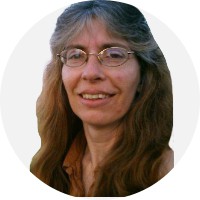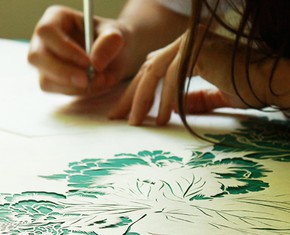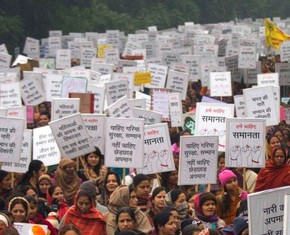The views expressed in our content reflect individual perspectives and do not represent the authoritative views of the Baha'i Faith.
In this chaotic world, various forms of excess prevent us from finding and maintaining our ever-elusive balance.
Give and take, action and reaction, push and pull—those forces constitute the basis of most of the problems facing society today. The age-old spiritual teaching of “All things in moderation” isn’t just a nice mantra–it forms an essential part of the solution to the chaos.
 In this age of instant gratification, 24-hour news, and social media, people often jump on various bandwagons of ideas and ideals that seem, on the surface, to agree with their principles–without ever truly investigating the claims. That bandwagon mentality feeds into rampant disarray, carrying people away passionately, abandoning balance, and never fully bringing anyone to an understanding of the issues at hand. Moderation is nowhere to be found. Anger and vehemence dominate. Justice is not served. The propaganda machine continues to work overtime, which means the truth often disappears. The result: an unbalanced pendulum wildly swinging from one extreme to the other.
In this age of instant gratification, 24-hour news, and social media, people often jump on various bandwagons of ideas and ideals that seem, on the surface, to agree with their principles–without ever truly investigating the claims. That bandwagon mentality feeds into rampant disarray, carrying people away passionately, abandoning balance, and never fully bringing anyone to an understanding of the issues at hand. Moderation is nowhere to be found. Anger and vehemence dominate. Justice is not served. The propaganda machine continues to work overtime, which means the truth often disappears. The result: an unbalanced pendulum wildly swinging from one extreme to the other.
Sadly, people we think we can trust, those we depend on to report the facts, get just as caught up in the above-mentioned discord, and as a result either can’t or don’t seek out the truth. Ultimately some report events that further their own agendas, leaving valuable information on the table, information that may well shed light on the realities of things. More and more often, the media presents information as factual news, it is latched onto by the masses, and then becomes quickly integrated into the consciousness of our world—and only later do we learn that it was not true to begin with. Unfortunately, the damage is done. Wars begin, violence reigns, and the world suffers. People have absorbed the information, accepted it as fact, and incorporated into their very way of being. This is a tremendous disservice to all of us.
What “oppression” is more grievous than that a soul seeking the truth… should know not where to go for it and from whom to seek it? – Baha’u’llah, The Book of Certitude, p. 31.
All of this chaos and corruption requires increased patience on our part. Today, more than ever, the world desperately needs to implement the Baha’i principle of the independent investigation of truth. We must do our research, take a balanced approach, rely on reason and rationale, find the source and understand the context of where the facts originated. Our job of ascertaining the truth has dramatically changed, becoming more complex, so independently investigating the truth is essential if we want to create an ever-advancing civilization.
The author and psychotherapist Philippa Perry puts it this way:
We all like to think we keep an open mind and can change our opinions in the light of new evidence, but most of us seem to be geared to making up our minds very quickly. Then we process further evidence not with an open mind but with a filter, only acknowledging the evidence that backs up our original impression. It is too easy for us to fall into the trap of believing that being right is more important than being open to what might be. If we practice detachment from our thoughts we learn to observe them as though we are taking a bird’s eye view of our own thinking. When we do this, we might find that our thinking belongs to an older, and different, story to the one we are now living.
Here is the good news–if we truly seek out the truth for ourselves, we may well discover that we are not as far apart on most issues as we are led to believe. We all lead busy lives and rarely have time to investigate much for ourselves, but we owe it to ourselves, our children, and future generations to slow down, step back, and independently investigate reality. In an address to a group of friends gathered in Massachusetts in 1912, Abdu’l-Baha said:
God has given man the eye of investigation by which he may see and recognize truth. He has endowed man with ears that he may hear the message of reality and conferred upon him the gift of reason by which he may discover things for himself. This is his endowment and equipment for the investigation of reality. Man is not intended to see through the eyes of another, hear through another’s ears nor comprehend with another’s brain. Each human creature has individual endowment, power and responsibility in the creative plan of God. Therefore, depend upon your own reason and judgment and adhere to the outcome of your own investigation; otherwise, you will be utterly submerged in the sea of ignorance and deprived of all the bounties of God. Turn to God, supplicate humbly at His threshold, seeking assistance and confirmation, that God may rend asunder the veils that obscure your vision. Then will your eyes be filled with illumination, face to face you will behold the reality of God and your heart become completely purified from the dross of ignorance, reflecting the glories and bounties of the Kingdom. – The Promulgation of Universal Peace, p. 97.
As our path of evolution moves forward, the future is ours to write. God has given us “the eye of investigation” so that we may “see and recognize truth” for ourselves.
















Comments
Sign in or create an account
Continue with Googleor